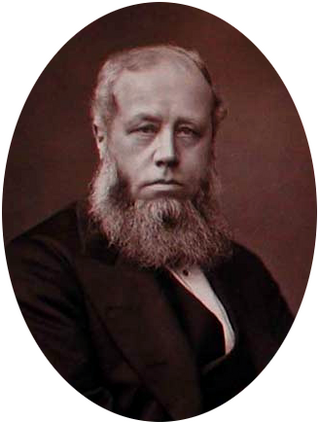Halsbury's Laws of England is an encyclopaedia of the law in England and Wales. It has an alphabetised title scheme for the areas of law, drawing on authorities including Acts of Parliament of the United Kingdom, Measures of the Welsh Assembly, UK case law and European law. It is written by or in consultation with experts in the relevant field.

Hedley Byrne & Co Ltd v Heller & Partners Ltd [1964] AC 465 is an English tort law case on economic loss in English tort law resulting from a negligent misstatement. Prior to the decision, the notion that a party may owe another a duty of care for statements made in reliance had been rejected, with the only remedy for such losses being in contract law. The House of Lords overruled the previous position, in recognising liability for pure economic loss not arising from a contractual relationship, applying to commercial negligence the principle of "assumption of responsibility".
In common law jurisdictions, a misrepresentation is a false or misleading statement of fact made during negotiations by one party to another, the statement then inducing that other party to enter into a contract. The misled party may normally rescind the contract, and sometimes may be awarded damages as well.

Caparo Industries PLC v Dickman[1990] UKHL 2 is a leading English tort law case on the test for a duty of care. The House of Lords, following the Court of Appeal, set out a "three-fold test". In order for a duty of care to arise in negligence:

Derry v Peek [1889] UKHL 1 is a case on English contract law, fraudulent misstatement, and the tort of deceit.
"Deception" was a legal term of art used in the definition of statutory offences in England and Wales and Northern Ireland. It is a legal term of art in the Republic of Ireland.

Sir Richard Baggallay PC was a British barrister, politician, and judge. After serving as Attorney-General under Benjamin Disraeli from 1874 to 1875, Baggallay was appointed a Lord Justice of Appeal in Chancery, serving until his resignation in 1885.

English contract law is the body of law that regulates legally binding agreements in England and Wales. With its roots in the lex mercatoria and the activism of the judiciary during the industrial revolution, it shares a heritage with countries across the Commonwealth, from membership in the European Union, continuing membership in Unidroit, and to a lesser extent the United States. Any agreement that is enforceable in court is a contract. A contract is a voluntary obligation, contrasting to the duty to not violate others rights in tort or unjust enrichment. English law places a high value on ensuring people have truly consented to the deals that bind them in court, so long as they comply with statutory and human rights.
The tort of deceit is a type of legal injury that occurs when a person intentionally and knowingly deceives another person into an action that damages them. Specifically, deceit requires that the tortfeasor

Lee v Lee's Air Farming Ltd [1960] UKPC 33 is a company law case from New Zealand, also important for UK company law and Indian Companies Act 2013, concerning the corporate veil and separate legal personality. The Judicial Committee of the Privy Council reasserted that a company is a separate legal entity, so that a director could still be under a contract of employment with the company he solely owned.

Williams v Natural Life Health Foods Ltd[1998] UKHL 17 is an important English tort law, company law and contract law case. It held that for there to be an effective assumption of responsibility, there must be some direct or indirect conveyance that a director had done so, and that a claimant had relied on the information. Otherwise only a company itself, as a separate legal person, would be liable for negligent information.

Smith v Land and House Property Corporation (1884) LR 28 Ch D 7 is an English contract law case, concerning misrepresentation. It holds that a statement of opinion can represent that one knows certain facts, and therefore one may have still made a misrepresentation.

Esso Petroleum Co Ltd v Mardon [1976] EWCA Civ 4 is an English contract law case, concerning misrepresentation. It holds that the divide between a statement of opinion and fact becomes more factual if one holds himself out as having expert knowledge.
Edgington v Fitzmaurice (1885) 29 Ch D 459 is an English contract law case, concerning misrepresentation. It holds that a statement of present intentions can count as an actionable misrepresentation and that a misrepresentation need not be the sole cause of entering a contract so long as it is an influence.
Macaulay v Schroeder Music Publishing Co Ltd [1974] 1 WLR 1308 is an English contract law decision of the House of Lords relating to restraint of trade.

Wakelin v R H & E A Jackson LTD (1984) 2 NZCPR 195 is an often cited case of the High Court of New Zealand regarding misstatements. The judgement ruled that merely being silent on an important fact can be construed as a misstatement in itself.

Jolly v Palmer [1985] 1 NZLR 658 is a cited case in New Zealand regarding the legal enforceability of a contract where there is a breach of a stipulation.

Esso Petroleum Co Ltd v Harper's Garage (Stourport) Ltd [1967] UKHL 1 is an English contract law case, concerning the restraint of trade through a tying arrangement.

Spring v Guardian Assurance plc[1994] UKHL 7, [1995] 2 AC 296 is a UK labour law and English tort law case, concerning the duty to provide accurate information when writing an employee reference.










